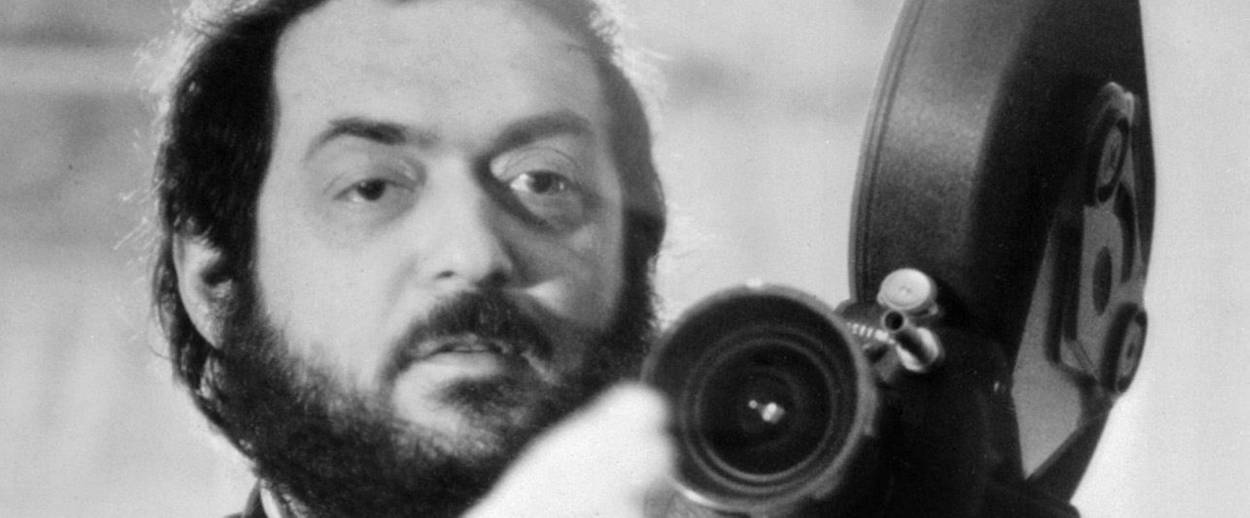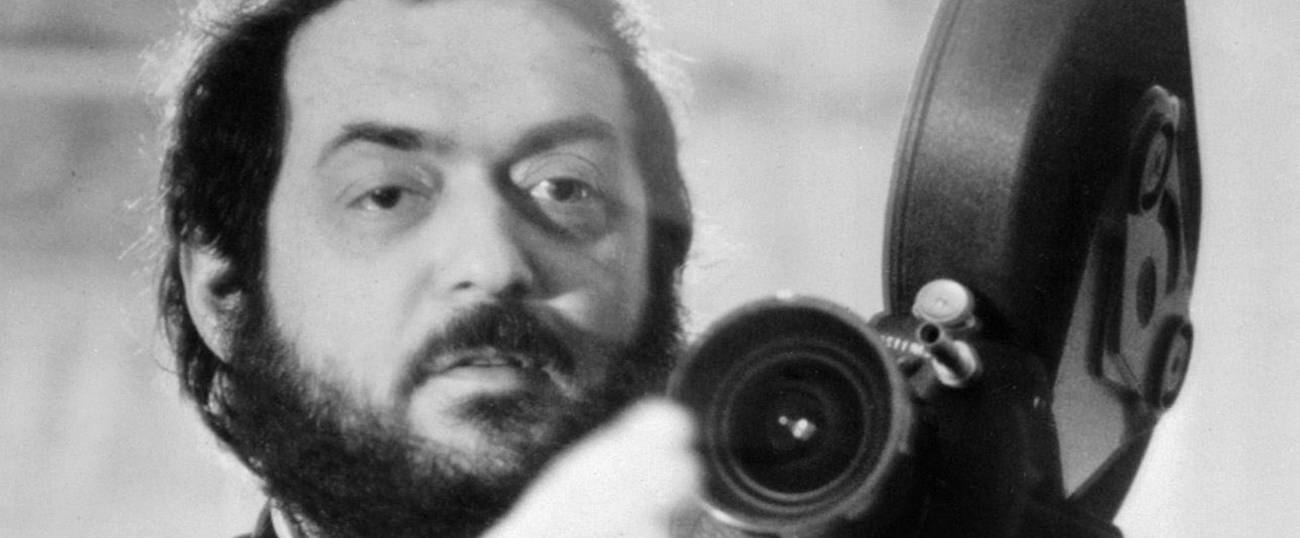A Lost Jewish Screenplay by Stanley Kubrick Resurfaces
Parts of the master’s ‘Burning Secret,’ based on a book by Stefan Zweig, found their way into ‘Eyes Wide Shut’




“Enough of war films. They’re death at the box office. Poison,” said MGM’s head of production, Dore Schary, to the 27-year-old Stanley Kubrick in 1956. Kubrick and his business partner Jimmy Harris were trying to get MGM interested in making Paths of Glory, Humphrey Cobb’s 1935 novel about the French army in World War I. Paths of Glory was one of the few books that Kubrick had read during high school: He devoured Cobb’s saga in the waiting room of his father, Jack Kubrick, a Bronx doctor. Later an omnivorous reader, in his teenage years young Stanley cared about only chess, photography, and movies. Kubrick didn’t serve in Korea because he was married, but Harris was a vet, and now the two wanted to make a film about war.
Schary wasn’t biting. He had been on the hook at MGM for the box office failure of John Huston’s The Red Badge of Courage, and he wasn’t going to make the same mistake twice. War movies were verboten, but Schary was impressed by Kubrick’s The Killing, the noir heist flick he and Harris had just made. So he told them, “We have a room full of properties we own. There must be something in there you boys want to do.”
Kubrick and Harris, who were now on contract, started rifling through MGM’s junk heap of old novels and screenplays. When they started to get bleary eyed from long hours of reading, they would play pingpong or watch a movie in one of the studio’s screening rooms.
One day Kubrick found a gem: Burning Secret by Stefan Zweig, the Austrian-Jewish writer who had committed suicide in Brazil in 1942 after his flight from the Nazis. Burning Secret tells the story of a beautiful Jewish woman on vacation with her 12-year-old son. A Baron staying at their hotel seduces the mother, enlisting the uncomprehending son as his go-between. The boy wrongly suspects that the Baron is about to murder his mother. After he realizes his mistake, he uses his new knowledge of the secret affair to influence his parents’ marriage. Shocking, subtle, and above all suspenseful, Zweig’s novella is perfect movie material.
In the end, Kubrick never made Burning Secret. Dore Schary got fired, and Harris-Kubrick moved on to Paths of Glory, which was already being scripted by crime novelist Jim Thompson during their brief MGM stint. Starring Kirk Douglas, Paths of Glory became, like Kubrick’s later Full Metal Jacket, one of the most memorable war films of all time.
Kubrick’s Burning Secret screenplay was thought to be lost, but lately a copy of the script, dated November 1956, has turned up in the archives of a private collector. Kubrick enlisted Calder Willingham, the prickly, talented Southern novelist, to write the screenplay with him, and they seem to have worked on it for the better part of a year. Nathan Abrams, author of the recent book Stanley Kubrick: New York Jewish Intellectual, has read the screenplay, and he’s impressed. “It foreshadows Eyes Wide Shut,” Abrams told me over the phone: Kubrick’s last movie was based on another novella by a central European Jewish writer, Arthur Schnitzler’s Dream Story.
Kubrick did with Burning Secret what he did decades later with Schnitzler’s book: He took a European-Jewish story, relocated it to America, and removed all traces of Jewishness. (There is a fleeting glimpse of a knish bakery in Eyes Wide Shut, but that’s about it.) “He takes a Jewish story and turns them all into goys,” as Abrams puts it. The married woman is no longer a voluptuous Jewish beauty but a 1950s American housewife named Virginia. Her husband is called Roy, her son Eddy, and the Baron becomes a distinctly nonaristocratic seducer named Richard. The hotel is in the Appalachian mountains.
“Some of the Burning Secret dialogue seems to have found its way into Eyes Wide Shut,” Abrams reports, “Not word for word, but the essence: The seducer makes the same pro-adultery arguments that Sandor does”—the handsome Hungarian that Nicole Kidman dances with in Eyes Wide Shut, in a spellbinding scene straight out of Max Ophuls’ The Earrings of Madame de …
Kubrick almost always removed overt references to Jewishness from his movies, but a strong connection to their Jewish sources still remains. Ophuls, one of Kubrick’s heroes, had adapted Zweig in his Letter From an Unknown Woman; and Kubrick’s second wife was echt Viennese-Jewish, the dancer Ruth Sobotka. The Bronx-born Kubrick had a feel for the Zentraleuropäische even when, as in Eyes Wide Shut, he translates its elegant Stimmung to modern day New York.
Burning Secret is one of a long list of unmade Kubrick films. His screenplay for a movie about Napoleon is available online, and his fascinating conversations with Napoleon scholar Felix Markham have been published. The Napoleon project was axed by Warner Bros., who were wary because Sergei Bondarchuk’s Waterloo, starring a somewhat weaselly looking Rod Steiger, had bombed at the box office. The Kubrick archives contain a script taken from Nabokov’s novel Laughter in the Dark along with one called The German Lieutenant, about a World War II mission, and I Stole Sixteen Million Dollars, based on the career of Baptist-minister-turned-bank-robber Herbert Wilson. Kubrick also wanted to make a movie from H. Rider Haggard’s Viking epic Eric Brighteyes, a book he loved deeply. And he planned to make Zweig’s stunning The Chess Game, which might have been the first great film about chess.
And then there was The Aryan Papers, an adaptation of Louis Begley’s brilliant, heartrending novel Wartime Lies. Kubrick was well into preproduction and had selected costumes and even his leading actress when he learned via Warner Bros.’ Terry Semel that Steven Spielberg was filming something about the Holocaust in Krakow. Kubrick was close to Spielberg and didn’t want to compete with him over the Shoah—and Spielberg in fact later wound up directing another unfinished Kubrick project, A.I.
A.I., like The Shining, has a boy at its heart. In this way they resemble Zweig’s Burning Secret and Begley’s Wartime Lies, in which a child thrusts himself into adult responsibility. Here is a key to the Kubrick universe. His films have the aura of the kid who has spent his time thinking and tinkering, trying to get things exactly right—a skill you need in both chess and photography. But when the grown-up world looms and boyhood hobbies yield their place to the facts of life, which include not just sex but war and mass death, then you grow up fast. It’s too bad that Kubrick didn’t live to read—or film!—Cormac McCarthy’s The Road, a project only he or Peckinpah could have handled.
Kubrick’s genius was the way he held on to the child’s point of view even while subjecting it to the voracious wolf of reality, in a hardheaded way that Spielberg has never managed. Boyhood itself isn’t always so innocent: The generals in Dr. Strangelove, like Clockwork Orange’s Alex, are kids at heart, really. Zweig knew this too. Burning Secret stuns the reader because the boy, in the end, isn’t at all charming or weak, but instead hungry for authority. He seems ready to take on the world, like Stanley Kubrick himself.
David Mikics is the author, most recently, of Stanley Kubrick (Yale Jewish Lives). He lives in Brooklyn and Houston, where he is John and Rebecca Moores Professor of English at the University of Houston.